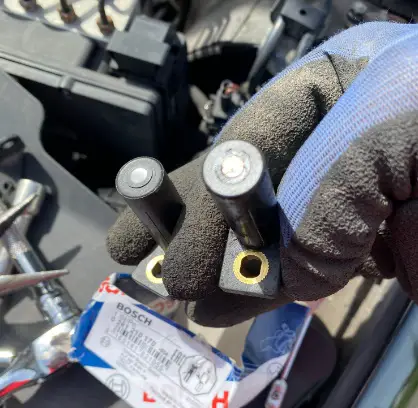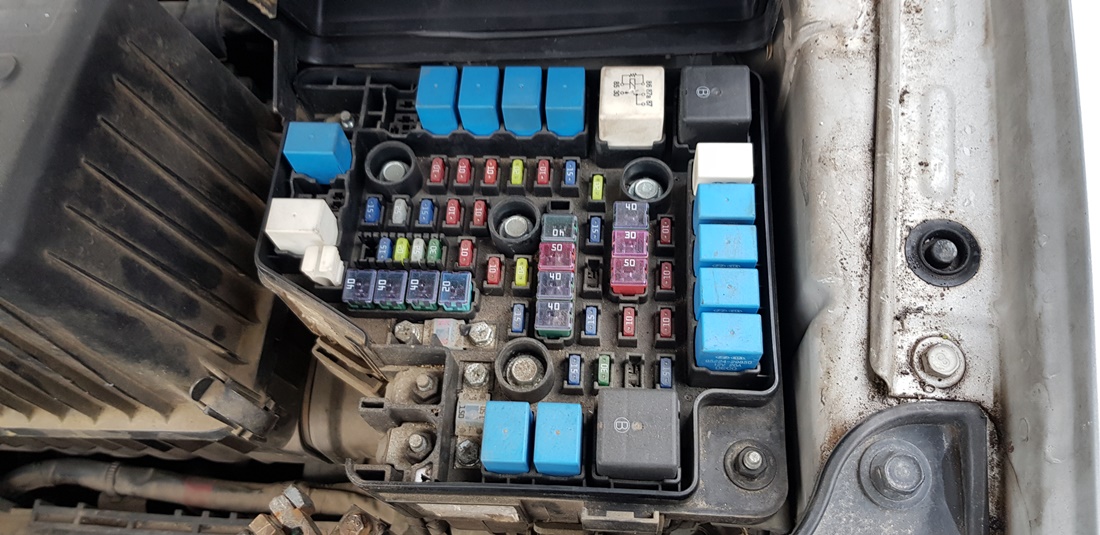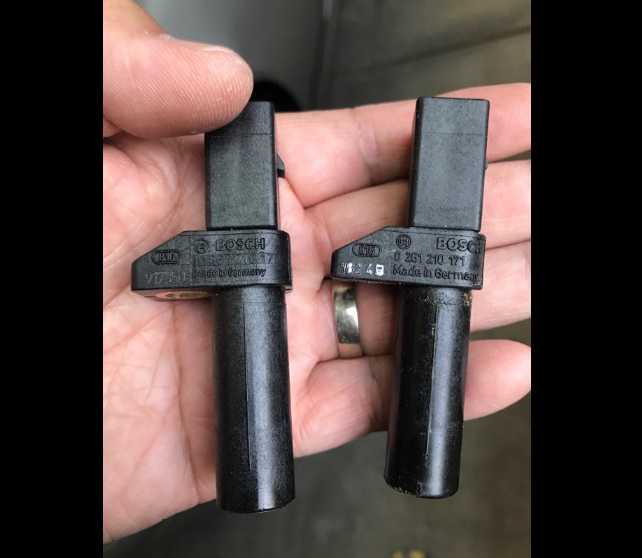With today’s fuel prices, you would have to be crazy not to want to save a few dollars. Sometimes, having a bad fuel economy can occur because of some mechanical issue and sometimes because of the driver itself.
Recently, my car started to spend more fuel than before. I wanted to find out why. So, I did pretty detailed research and found all of the reasons why my car is wasting so much gas. Here is what I found out:
- Key Takeaway
- Why Is My Car Wasting So Much Gas
- How To Fix a Car That Burns Gas Fast
- FAQs
- Q: What is gas mileage?
- Q: How can bad gas mileage affect my car?
- Q: What are fuel injectors and how do they affect gas mileage?
- Q: How does a clogged fuel injector affect gas mileage?
- Q: Can a dirty air filter affect gas mileage?
- Q: How do driving habits affect gas mileage?
- Q: How often should I change my oil to maintain good gas mileage?
- Q: Can tire pressure affect gas mileage?
- Q: What are the main causes of poor gas mileage?
- Q: How can I improve my gas mileage?
- In Conclusion
Key Takeaway
- Your car could be wasting so much gas because of low tire pressure, vacuum leak, leaking fuel injectors, fouled or dirty spark plugs, dirty air filters, stuck brakes, loose gas cap, always having your AC on, or bad driving habits.
- Fixing a car that burns gas fast can involve several steps such as maintaining proper tire pressure, using the right engine oil, driving smoothly without rapid acceleration or deceleration, reducing excess weight, ensuring timely maintenance, and addressing any mechanical issues like malfunctioning oxygen sensors or fuel injectors.
Why Is My Car Wasting So Much Gas
- Low tire pressure
- Vacuum leak
- Leaking fuel injector
- Fouled or dirty spark plugs
- Dirty air filters
- Stuck brakes
- Loose gas cap
- Having your air conditioner on all the time
- Bad driving habits
1. Low tire pressure
![Why Is My Car Wasting So Much Gas [9 Reasons]](https://i0.wp.com/carcarehacks.com/wp-content/uploads/2021/08/Low-tire-pressure.jpg?resize=720%2C480&ssl=1)
Driving a vehicle with low tire pressure will put additional stress on the engine and cause it to increase the RPMs resulting in a loss of miles per gallon. Inflating the tires at the correct psi will ensure that your vehicle gets the best fuel economy. A good rule of thumb is to inflate the tires to four to five psi less than their maximum.
So, why is my car wasting so much gas you wonder? A study has shown that you can improve your gas mileage by 0.6% to 3% by keeping your tires inflated as recommended by the tire manufacturer. You are losing 0.2% for every 1 psi drop per tire. Plus, driving with properly inflated tires will last make them last longer.
2. Vacuum leak
![Why Is My Car Wasting So Much Gas [9 Reasons]](https://i0.wp.com/carcarehacks.com/wp-content/uploads/2022/12/Why-Is-My-Car-Wasting-So-Much-Gas-9-Reasons-1-1024x683.png?resize=1024%2C683&ssl=1)
If your vehicle has a vacuum leak, it causes the air-to-fuel ratio to lean out. Once this happens, the oxygen sensor communicates to the electronic control unit to increase the fuel so the engine doesn’t run lean. This results in a richer fuel mixture causing poor fuel economy.
In most cases, you’ll notice the engine has a rough idle or up-and-down idle. These are all indicators of a vacuum leak. Other sources of vacuum leaks are fuel injector seals, intake manifold gaskets, and throttle body gaskets. Repairing the vacuum leak will increase mpg and fix the rough idle issues.
3. Leaking fuel injector
![Why Is My Car Wasting So Much Gas [9 Reasons]](https://i0.wp.com/carcarehacks.com/wp-content/uploads/2020/12/Will-Injector-Cleaner-Fix-a-Misfire-1024x768.jpg?resize=1024%2C768&ssl=1)
Fuel injectors spray fuel into the intake manifold at a certain angle and then that mixture of fuel and air gets burned into the combustion chamber.
A leaking fuel injector will definitely cause poor fuel economy because it will leak fuel all of the time and will disrupt the precise air-to-fuel ratio. Fuel injectors can wear over time like any other car parts.
A leaking fuel injector can also cause the engine to misfire. When this happens, it means that one or more cylinders have stopped producing power. You will feel that your vehicle will start to work differently and will lose power.
4. Fouled or dirty spark plugs

Having fouled or dirty spark plugs can cause vehicles to waste fuel. This happens because when the fuel is sprayed into the combustion chamber fouled or dirty spark plugs will not ignite the fuel. When unburnt fuel is added to a cylinder and it doesn’t combust, it gets wasted.
This causes bad gas mileage. Replacing faulty spark plugs with new ones will ensure a good idle and better fuel economy.
5. Dirty air filters
![Why Is My Car Wasting So Much Gas [9 Reasons]](https://i0.wp.com/carcarehacks.com/wp-content/uploads/2020/07/Can-I-Clean-And-Reuse-The-Cabin-Air-Filter.png?resize=840%2C444&ssl=1)
A dirty air filter will definitely cause bad MPG. When an air filter is dirty and clogged, that causes the engine to struggle. The air filter has a mission to filter out the air before it gets into the engine. Having a dirty air filter will lead to less air getting through the air filter and will deprive the engine of air.
This can even lead to lean conditions causing your engine to overheat. Replacing the air filter with a new one can improve miles per gallon by up to ten percent. It’s been reported that clean air filters can save up to thirty-two cents per gallon or add up to 23 miles per gas tank.
6. Stuck brakes

Stuck brake pads and calipers may not sound like something you’ve heard of, but they will most definitely cause bad gas mileage. I’ve personally seen as much as 15 miles per gallon loss from stuck brake calipers.
Once you get the brake caliper guides and clips cleaned and properly installed, MPG can increase from 18 miles per gallon to 36 miles per gallon. In most cases, the brakes can get stuck as a result of greasing the caliper guide bolts.
This causes air pockets that don’t allow the caliper to rest in the correct position and results in the brake pads being pressed against the rotor. In some cases, the brake caliper can go bad and needs to be replaced. Ensuring your brake clips and caliper guide bolts are properly assembled will help yield the best fuel economy.
7. Loose gas cap

A loose gas cap will result in poor fuel economy. Although it might seem like false information, trust me, it’s true. The gas vapors will evaporate out of the gas tank if you leave the gas cap loose. The same thing can happen with rubbing alcohol.
This is the same principle as gasoline. Properly tightening your gas cap will result in a properly sealed fuel system and the gas vapors will not escape. Studies find that a loose gas cap can cause up to a 10% decrease in fuel economy.
8. Having your air conditioner on all the time
![Why Is My Car Wasting So Much Gas [9 Reasons]](https://i0.wp.com/carcarehacks.com/wp-content/uploads/2022/12/Why-Is-My-Car-Wasting-So-Much-Gas-9-Reasons-4-1024x683.png?resize=1024%2C683&ssl=1)
Air conditioners in vehicles use Freon. But, it requires a lot of electrical power in order for your air conditioner to start working. The request for such a large amount of electrical power puts additional pressure on the engine.
This means that the engine is now working more in order to produce the needed electrical power, thus burning more fuel.
If you wonder why is my car wasting so much gas, here is why. It is known that driving with your air conditioner can increase fuel consumption by up to 20% because of that extra load on your vehicle’s engine.
Of course, the load on the engine will depend on the size of the vehicle’s interior as larger interiors take more time to cool down.
9. Bad driving habits
Having bad driving habits is probably the biggest enemy of your vehicle’s fuel economy. If you are an aggressive driver who likes to accelerate too quickly or rev the engine while on a traffic stop, you will probably have worse fuel economy than those who drive slower.
This also goes for people who leave the car idle instead of turning it off. If you have a car with an onboard computer, you can see that some vehicles can spend up to 1 liter of fuel per hour while in idle says Repair Pal.
How To Fix a Car That Burns Gas Fast
- Regularly check and maintain the tire pressure.
- Replace dirty or clogged air filters.
- Fix any vacuum leaks.
- Ensure your spark plugs are functioning properly.
- Get the oxygen sensors checked and replaced if needed.
- Check for fuel injector leaks and get them repaired.
- Drive at a moderate speed and avoid rapid acceleration.
- Limit the use of air conditioning and heaters when not necessary.
- Remove unnecessary weight from the vehicle.
- Ensure regular servicing and maintenance of the car.
- Use cruise control on highways to maintain a constant speed.
- Avoid idling for long periods.
- Keep your engine tuned and well-maintained.
- Opt for high-quality fuel.
- Plan your trips wisely to avoid traffic and multiple short trips.
FAQs
Q: What is gas mileage?
A: Gas mileage refers to the number of miles a vehicle can travel on a single gallon of fuel. It is also known as fuel economy.
Q: How can bad gas mileage affect my car?
A: Bad gas mileage can result in increased fuel consumption and higher expenses. It can also indicate underlying issues in your vehicle’s engine or fuel system that require attention.
Q: What are fuel injectors and how do they affect gas mileage?
A: Fuel injectors are responsible for delivering fuel into the engine in a fine mist for combustion. When they become clogged or dirty, they can affect the fuel-to-air ratio and result in poor gas mileage.
Q: How does a clogged fuel injector affect gas mileage?
A: A clogged fuel injector can disrupt the proper fuel flow to the engine, making it run inefficiently. This can cause poor gas mileage and other related issues.
Q: Can a dirty air filter affect gas mileage?
A: Yes, a dirty air filter can restrict the airflow to the engine, affecting the combustion process and ultimately resulting in poor gas mileage.
Q: How do driving habits affect gas mileage?
A: Aggressive driving, excessive idling, and frequent stop-and-go traffic can all contribute to poor gas mileage. Maintaining steady speeds and driving conservatively can help improve fuel efficiency.
Q: How often should I change my oil to maintain good gas mileage?
A: It is recommended to change your car’s oil according to the manufacturer’s specifications. Regular oil changes can help keep your engine running smoothly and optimize gas mileage.
Q: Can tire pressure affect gas mileage?
A: Yes, underinflated tires can increase rolling resistance, making the engine work harder and reducing fuel efficiency. It is important to maintain the recommended tire pressure for optimal gas mileage.
Q: What are the main causes of poor gas mileage?
A: The main causes of poor gas mileage include clogged fuel injectors, dirty air filters, faulty oxygen sensors, misfiring spark plugs, excessive idling, and aggressive driving habits.
Q: How can I improve my gas mileage?
A: To improve gas mileage, you can ensure your car is properly maintained, including regular oil changes, keeping tires properly inflated, replacing air filters when necessary, and adopting fuel-efficient driving habits.
In Conclusion
In conclusion, there are numerous reasons why your car may be consuming more gas than usual.
These include factors such as low tire pressure, a dirty air filter, faulty oxygen sensors, or misfiring spark plugs.
Other potential reasons could be a vacuum leak, leaking fuel injectors, or your vehicle simply aging.
It’s also worth noting that clogged or bad fuel injectors can make the engine work harder, leading to increased fuel consumption.




